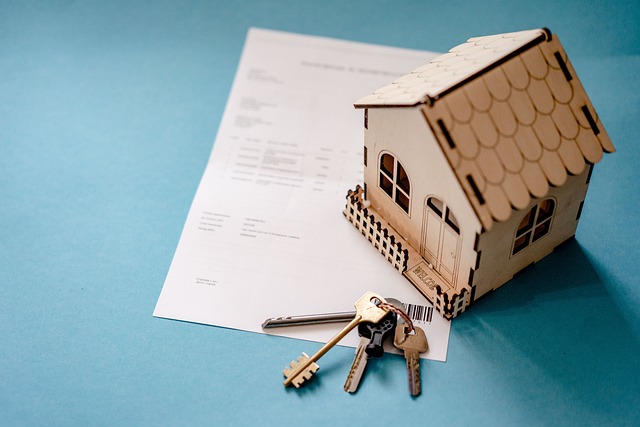Property owners and landlords must implement robust risk management strategies to secure their real estate investments, focusing on tenant screening, proactive maintenance, and efficient financial tracking. Utilizing property management software is crucial for these tasks, offering advanced features like comprehensive tenant background checks, automated rent collection, and detailed record-keeping to ensure stable cash flow and protect against market fluctuations and property damages. Regular property inspections and adherence to property management tips are vital for preserving the value of rental properties and for fostering a positive relationship with tenants. By staying informed about local housing laws, keeping abreast of market trends, and employing technology effectively, landlords can optimize their rental income while maintaining a well-managed portfolio that remains attractive to renters in a competitive real estate market.
Navigating the complexities of real estate investments necessitates a robust risk management framework. This article delves into the essential strategies for safeguarding your investments through effective property management. We’ll explore how property owners and landlords can leverage advanced property management software to mitigate risks associated with rental properties, ensuring stable income streams. Tenant screening remains pivotal in this context; we’ll review the best practices that lead to reliable tenants. Additionally, strategic maintenance planning is highlighted as a key measure to preserve property value and appeal. Finally, understanding the legal landscape and fostering optimal communication within landlord-tenant dynamics are crucial for maintaining compliance and positive relationships. With these insights, you’ll be equipped with property management tips aimed at bolstering your investment protection and profitability in the real estate market.
- Understanding Risk Management in Real Estate and Property Management
- The Role of Property Management Software in Mitigating Risks for Rental Properties
- Effective Tenant Screening Strategies to Ensure Stable Rental Income
- Strategic Maintenance Planning to Preserve Property Value and Attractiveness
- Navigating the Landlord-Tenant Relationship: Legal Considerations and Communication Best Practices
- Leveraging Expert Property Management Tips for Enhanced Investment Protection and Profitability
Understanding Risk Management in Real Estate and Property Management

In real estate and property management, risk management is a pivotal practice for safeguarding investments and ensuring long-term financial stability. For property owners, landlords, and those in the realm of property management, understanding and implementing effective risk management strategies is crucial to protect against potential losses and market volatility. Rental properties, in particular, present unique challenges that necessitate a proactive approach to maintenance, tenant relations, and operational efficiency. Landlords can mitigate risks by utilizing property management software, which streamlines the management of rental income, expense tracking, and communication with tenants. This technology not only enhances record-keeping but also aids in timely rent collection, which is vital for cash flow stability.
Furthermore, property owners must engage in meticulous tenant screening to ensure reliable occupancy and minimize the risk of unpaid rent or property damage. Establishing clear lease agreements, conducting thorough background checks, and maintaining open lines of communication with tenants are key components of successful property management. Regular property maintenance not only preserves the value of the property but also fosters a positive living environment that can lead to longer tenant retention. By staying abreast of property management tips and industry best practices, landlords can effectively navigate the complexities of managing rental properties, ultimately securing their investment against various risks. It’s imperative for property owners to continuously adapt their strategies, leveraging technology and adhering to sound financial principles to protect their assets in the dynamic real estate market.
The Role of Property Management Software in Mitigating Risks for Rental Properties

In the realm of real estate, property owners and landlords are continuously seeking effective strategies to safeguard their rental properties against various risks. One pivotal tool in this endeavor is property management software, which plays a crucial role in streamlining operations and mitigating potential hazards. This sophisticated platform offers comprehensive property management tips that enable users to manage tenant relationships, monitor rental income, and oversee property maintenance efficiently. By automating tasks such as rent collection, accounting, and communication, the software reduces the likelihood of human error, which can lead to financial losses or legal complications. Furthermore, it aids in conducting thorough tenant screenings, ensuring that only reliable tenants occupy the properties, thereby minimizing the risk of missed rent payments or property damage. The software’s ability to maintain detailed records and generate timely reports allows landlords to stay informed about their investments’ performance and address any issues promptly, thus preserving the value of their rental properties and securing their financial interests.
Effective tenant management is just one facet of risk mitigation in rental property investment. Property management software also assists property owners in maintaining a schedule of regular property inspections and maintenance, which is essential for detecting and addressing issues before they escalate into costly repairs. The software’s scheduling feature ensures that maintenance tasks are carried out on time, reducing the chances of major damages that could result from neglected property upkeep. Additionally, by providing landlords with a clear overview of their properties’ conditions, it helps in making informed decisions regarding improvements or renovations that can enhance rental appeal and increase potential rental income. Overall, the integration of property management software into the operations of rental properties is not just a convenience but an indispensable tool for maintaining the integrity of real estate investments and safeguarding against the myriad risks associated with rental ownership.
Effective Tenant Screening Strategies to Ensure Stable Rental Income

For property owners and landlords seeking to safeguard their rental income, effective tenant screening is paramount in the realm of real estate management. A rigorous screening process not only weeds out unreliable tenants but also contributes to long-term stability in rental income. Utilizing property management software can streamline this process, allowing landlords to efficiently assess potential tenants’ credit history, employment verification, and previous rental history. This data is crucial for predicting a tenant’s likelihood to meet their financial obligations, thereby reducing the risk of vacancies and late payments.
In addition to leveraging technology, property management tips emphasize the importance of thorough in-person interviews to gauge a prospective tenant’s reliability and compatibility with the property. A clear understanding of each applicant’s lifestyle, pet ownership, and personal references can provide valuable insights into their behavior as renters. Regular property maintenance and a well-maintained property can also signal to tenants that the landlord values the property, which can foster a sense of responsibility and care on the part of the tenant. By combining these strategies with careful record-keeping and attention to local real estate trends, property owners can optimize their rental income and enhance the overall experience for both themselves and their tenants.
Strategic Maintenance Planning to Preserve Property Value and Attractiveness

Effective property management is a cornerstone in preserving and enhancing the value and appeal of real estate investments. For property owners, including landlords, the implementation of strategic maintenance planning is not just about fixing issues as they arise; it’s about proactive upkeep that ensures rental properties remain attractive to tenants and retain their market value over time. By utilizing property management software, these stakeholders can streamline maintenance requests, schedule regular inspections, and track the progress of repairs, thereby minimizing downtime and maximizing rental income. The key is to balance the cost of maintenance with the potential for increased occupancy rates and higher property values. Regular maintenance not only prevents minor issues from escalating into major problems but also signals to tenants that the property is well-maintained and managed, fostering a sense of pride and care in their living environment.
In addition to routine upkeep, strategic planning encompasses a comprehensive approach to property management, which includes tenant screening and retention strategies. Tenant screening is an essential process for any landlord or property manager, as it ensures that reliable tenants are occupying the property. This not only reduces the risk of non-payment but also minimizes potential damage to the rental unit. Retaining good tenants through responsive communication and timely resolutions to issues can lead to longer tenancy periods, reduced turnover costs, and a stable source of rental income. By combining robust tenant screening with meticulous property maintenance records, property owners can create a portfolio that not only preserves its value but also attracts responsible tenants who contribute to the overall success of the investment.
Navigating the Landlord-Tenant Relationship: Legal Considerations and Communication Best Practices

Navigating the landlord-tenant relationship requires a delicate balance of legal acumen and effective communication. Property owners must stay abreast of local housing laws and regulations to ensure compliance and protect their rental property investments. Real estate investors often engage in property management activities, which can be streamlined with dedicated property management software that tracks everything from rental income to tenant screening histories. These tools are invaluable for maintaining a professional approach to the day-to-day operations of managing a property.
Effective communication is the cornerstone of a positive landlord-tenant relationship. Establishing clear, transparent policies and responding promptly to maintenance requests can foster trust and satisfaction among tenants. Regular interaction, coupled with timely resolutions to issues, not only upholds tenant welfare but also contributes to consistent rental income for the property owner. Consistent application of property management tips, which include thorough tenant screening and proactive maintenance schedules, further mitigates risks associated with rental properties. By prioritizing clear communication and legal understanding, property owners can navigate this relationship successfully, ensuring a stable and profitable real estate investment portfolio.
Leveraging Expert Property Management Tips for Enhanced Investment Protection and Profitability

In the realm of real estate investment, particularly with rental properties, leveraging expert property management tips is crucial for safeguarding investments and maximizing profitability. As a property owner or landlord, it’s imperative to implement robust tenant screening processes to ensure reliable occupants who respect the property and pay their rent on time. This selective approach not only protects your investment but also fosters a stable rental income stream. Beyond tenant selection, maintaining the property in top condition is pivotal. Regular upkeep and timely repairs, often facilitated by comprehensive property management software, help preserve the property’s value and appeal to tenants. Such software streamlines communication, financial record-keeping, and maintenance scheduling, which are essential for efficient property management. By staying abreast of market trends and maintaining a well-maintained property, you can enhance your investment’s protection and profitability, ensuring a competitive edge in the real estate market.
Effective property management encompasses much more than just tenant relations; it involves a strategic approach to every aspect of managing a rental property. This includes meticulous financial oversight, where keeping detailed records is essential for tax purposes and for monitoring cash flow. Additionally, understanding local housing laws and regulations is vital to avoid legal pitfalls. By adhering to these property management tips, landlords can navigate the complexities of real estate management with greater ease and confidence. The use of technology, such as dedicated property management software, not only simplifies these tasks but also provides a buffer against potential errors or oversights that could otherwise impact the investment negatively. In essence, a well-managed rental property is one that not only generates consistent rental income but also maintains its value over time, ensuring both protection and profitability for the property owner.
In conclusion, effective risk management is indispensable for property owners in the real estate sector to safeguard their investments and optimize rental income. By integrating sophisticated property management software, conducting thorough tenant screenings, planning strategic property maintenance, understanding the nuances of landlord-tenant dynamics, and adhering to legal considerations, prudent property managers can significantly mitigate risks associated with rental properties. The insights and tips presented underscore the importance of a comprehensive approach to property management for enhancing investment protection and profitability. With these strategies in place, real estate investors are better equipped to navigate market volatility and secure their financial future in the ever-evolving landscape of real estate.




